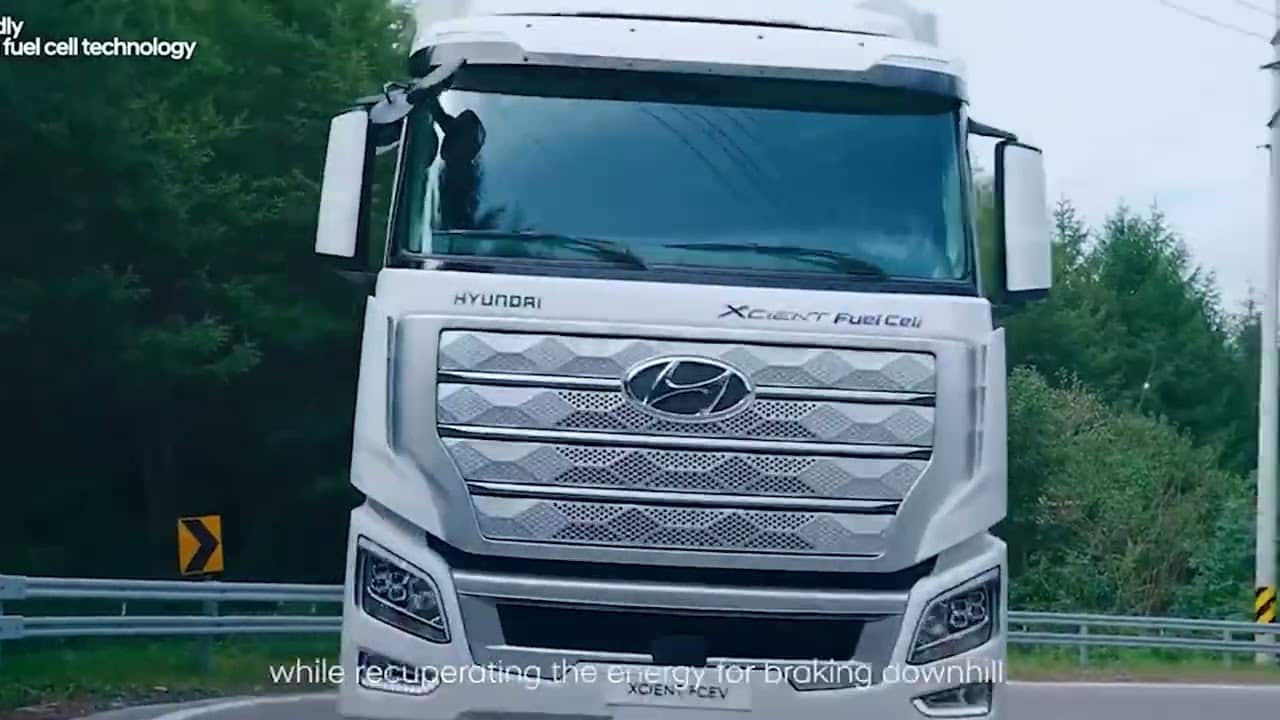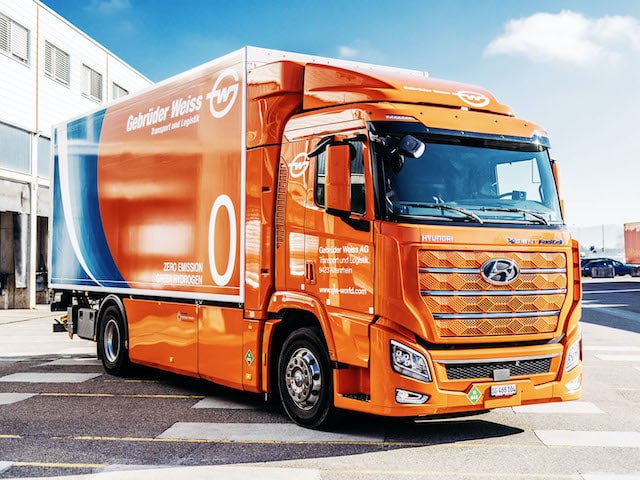Trucks powered by green hydrogen represent a promising advance in the quest for decarbonizing transport. However, a study highlights that these vehicles require four times more renewable energy than their battery equivalents. This reality poses significant challenges for energy infrastructure and the management of renewable resources, emphasizing the need for deep reflection before committing to a massive transition to green hydrogen for road transport.

According to a recent study, trucks powered by green hydrogen will require four times more renewable energy compared to battery electric trucks. This significant difference raises important questions about the energy efficiency and environmental viability of different heavy transport technologies. Let’s delve into the details of these comparisons and their implications for the future of road transport.
Table of Contents
ToggleEnergy needs of green hydrogen trucks
Green hydrogen trucks must overcome several hurdles, notably their energy efficiency. The production, liquefaction, and compression of green hydrogen demand about four times more renewable energy than what is needed to power an equivalent electric truck. This enormous energy demand is explained by the multiple stages and energy losses in each process.
Comparison with battery electric trucks
In contrast, battery electric trucks demonstrate much higher efficiency. For instance, Renault Trucks offers 4×94 kWh batteries allowing for a range of 300 km with an energy consumption of 1 kWh/km. This efficiency reduces the requirements in terms of infrastructure and renewable energy, making this type of vehicle more attractive for widespread adoption.
Impact of distribution infrastructure
One of the main reasons for the high energy consumption of hydrogen trucks is the weakness of distribution infrastructure. Currently, the hydrogen distribution network is underdeveloped, forcing suppliers to transport this fuel over long distances, thus increasing energy consumption. Unless massive investments are made to develop this infrastructure, hydrogen is likely to remain a costly and energy-intensive solution.
Slow decline of green hydrogen costs
The cost of green hydrogen remains one of the major obstacles to its adoption. Although efforts are being made to reduce these costs, progress remains too slow for hydrogen to compete with battery electric vehicles. This directly affects the overall ownership cost of hydrogen trucks, making them less affordable for many transport companies.
The evolution of the heavy-duty truck market
Despite these challenges, the hydrogen heavy-duty truck market is experiencing growth. According to a study by Information Trends, more than 800,000 commercial fuel-cell trucks could be sold by 2035. However, it is important to note that most experts forecast that only 20% of trucks will run on hydrogen by 2044, the rest being primarily battery electric vehicles.
Advancements needed for the future
For green hydrogen to become a viable alternative to electric batteries, several advancements need to be achieved. This includes improving the efficiency of the hydrogen production-consumption cycle, developing robust distribution infrastructures, and significantly reducing production costs. Without these evolutions, it will be difficult for hydrogen to compete with current electric options.
McPhy, Champion français de l'hydrogène vert
— BFM Business (@bfmbusiness) June 14, 2024
"On a une usine de nouvelle génération, qui va nous permettre de nous déployer dans les années à venir "
💬Jean-Baptiste Lucas, DG du groupe @McPhyEnergy
🎙@LaureClosier pic.twitter.com/KNr7Ilmzfb
Articles similaires
Thank you!
We will contact you soon.














